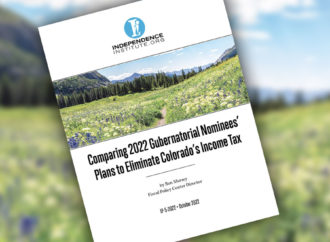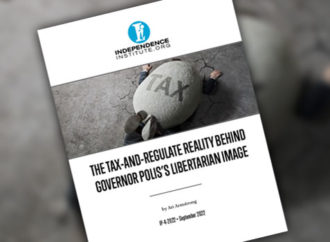How New 2024 Tax Expenditures Undermine TABOR
- July 24, 2024

Governor Jared Polis has been a consistent advocate for eliminating the state income tax, or at least “buying it down” through the Taxpayer’s Bill of Rights (TABOR) surplus. This year, Polis claimed that legislation passed in 2024 did “deliver on that promise” to reduce the income tax rate, but Independence Institute’s research finds that legislation
READ MORE
Colorado’s governor, Jared Polis, champions increasing state revenue by eliminating provisions of the tax code that benefit special interests—what state budgeters call “tax expenditures.” Rather than use the new money to grow government or redistribute surplus revenue through tax handouts and Taxpayer’s Bill of Rights (TABOR) refunds, however, the governor argues the state should use
READ MORE
The 2022 Republican nominee for governor of Colorado, Heidi Ganahl, has proposed eliminating Colorado’s income tax, calling it a “big bold idea to take us to zero income tax.” On September 30th at a gubernatorial candidates’ forum hosted by Colorado Concern, the moderator, Dean Singleton, pressed Ganahl on her plan for accomplishing this. In response,
READ MORE
To what extent is Jared Polis a pro-liberty or libertarian governor? Here we can take “libertarian” broadly to mean support for free markets and personal liberties. There is no precise measure of the “libertarianness” of Polis’s various policies and actions that might yield some overall objective score. Some of his policies and actions are pro-liberty,
READ MORE
Colorado has experienced a skilled labor shortage for years, but the COVID-19 pandemic further exposed the underlying problems in the workforce. The state has a high percentage of workers who are particularly vulnerable to forced closures compared with other states, yet those workers tend to lack the skills necessary to fill more secure, in-demand jobs
READ MORE
INTRODUCTION By mid-March 2020, it was apparent that a major pandemic was in process. Estimates were that millions upon millions of Americans would die from COVID-19 and that there would be insufficient hospital resources to treat all the expected chronic cases. As a result, almost all states instituted shelter-in-place emergency orders. Given the available information,
READ MORE